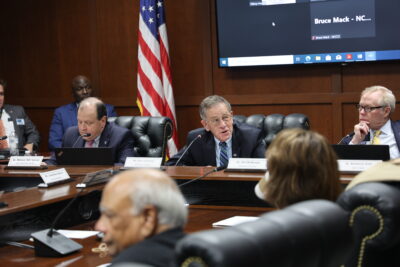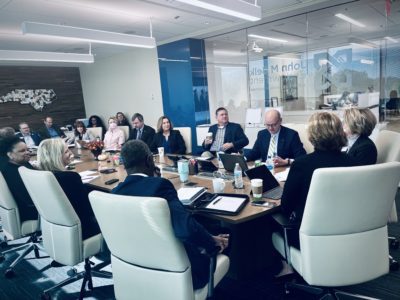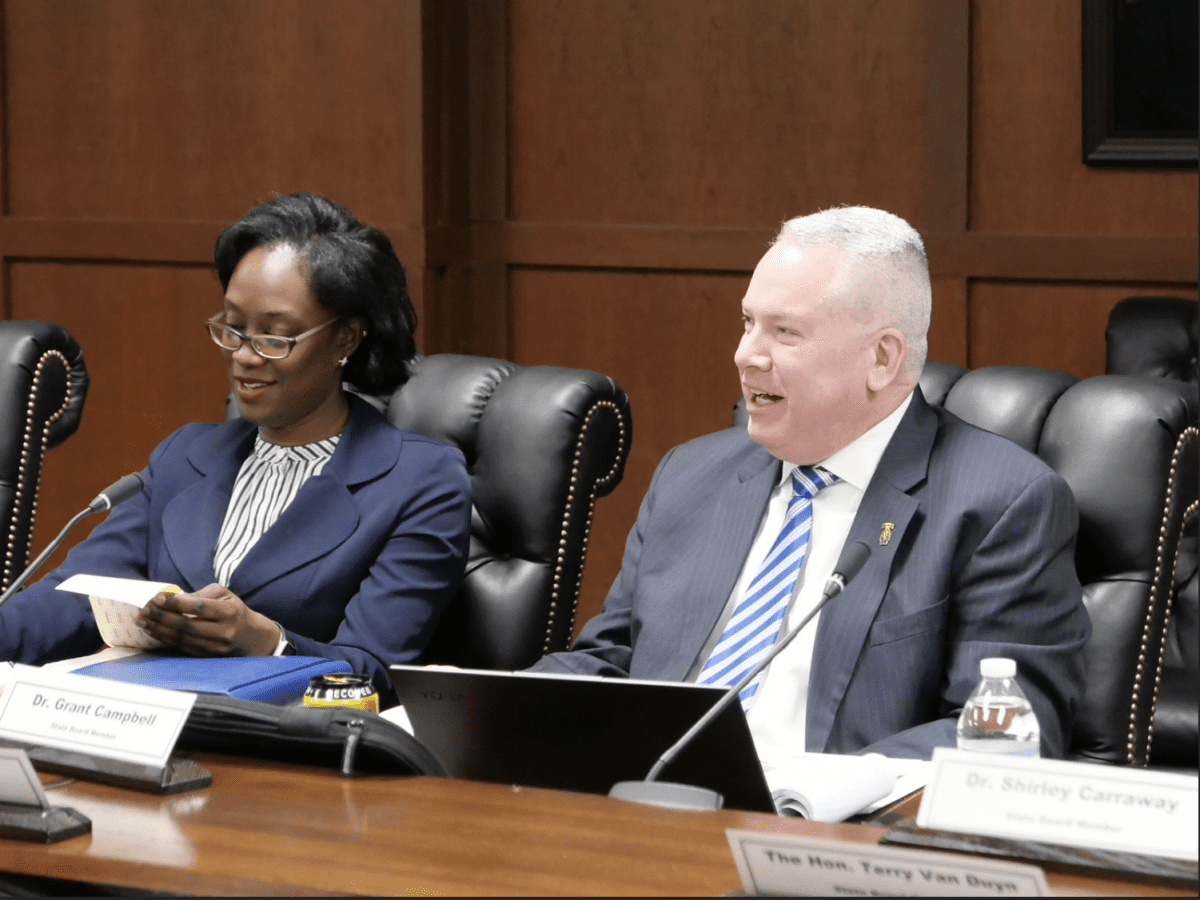

|
|
The search for the next North Carolina Community College System (NCCCS) president is moving forward.
During the State Board of Community Colleges’ March meeting, Presidential Search Committee Co-Chair Dr. Shirley Carraway shared that the sourcing phase is complete. The committee has vetted applicant information and has determined those they will invite for the first round of interviews. The committee interviewed two candidates on Friday after the Board meeting.
Once first-round interviews are complete, the committee will narrow the pool and determine if second round interviews are required.
Carraway said if the search committee feels confident enough moving forward with the narrowed pool, they will hold joint meetings with the full Board to conduct second round interviews of remaining applicants.
According to Carraway, the president’s job posting was searched over 36,000 times, viewed over 11,000 times, and sent to over 700 people.
Wilson Community College announced Dr. Jami Woods as the college’s sixth president. The Board approved the recommendation of Woods during their March meeting but kept the name confidential until Wilson Community College made the announcement. The Board also approved five candidates seeking the president position at Randolph Community College. Randolph’s Board of Trustees will hold a meeting to announce the candidate names.
Student experiences at the center
Student experiences were at the forefront of this month’s meeting. During his presentation to the Board, Dr. Jeff Cox, president of the North Carolina Association of Community College Presidents (NCACCP), shared the story of Caldwell Community College & Technical Institute student Lowery Cocke.
Cocke is a Navy veteran, a father, and a first-generation college student. He is also someone with gratitude for the ways the community college showed him love, understanding, and compassion during a time in his life when he was struggling financially and thought he may have to quit school. In Cocke’s words, the institution didn’t leave him behind.
You can listen to Cocke’s story starting at 32:08.
Board members saw the most recent system-wide student survey results distributed by the N.C. Comprehensive Community College Student Government Association (N4CSGA). LaTasha Bradford, president of N4CSGA, said the survey focused on the types of challenges students encounter and the impact of those challenges.
Over half of students who responded to the survey (68.4%) said the stress of life and college impacts their mental health. Almost half of students (46%) said that if community colleges addressed these mental health challenges, it would have a significant or extreme impact on their ability to stay enrolled.
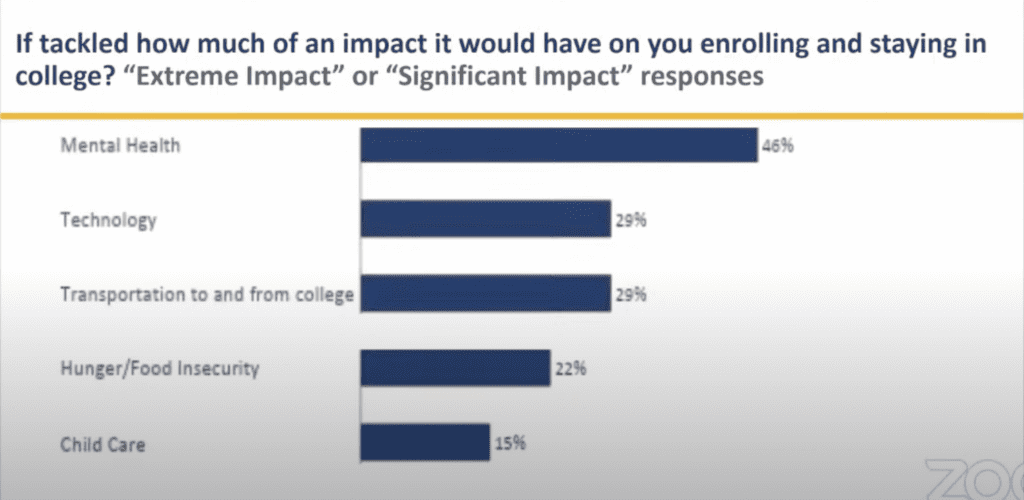

Bradford pointed out the majority of students surveyed were unsure of the resources available to them at their institution, particularly with regards to child care, food insecurity, mental health services, and transportation. Students were more aware of the technology resources available to them. Bradford surmised it was because technology appears to have a more direct impact on a student’s ability to complete courses.
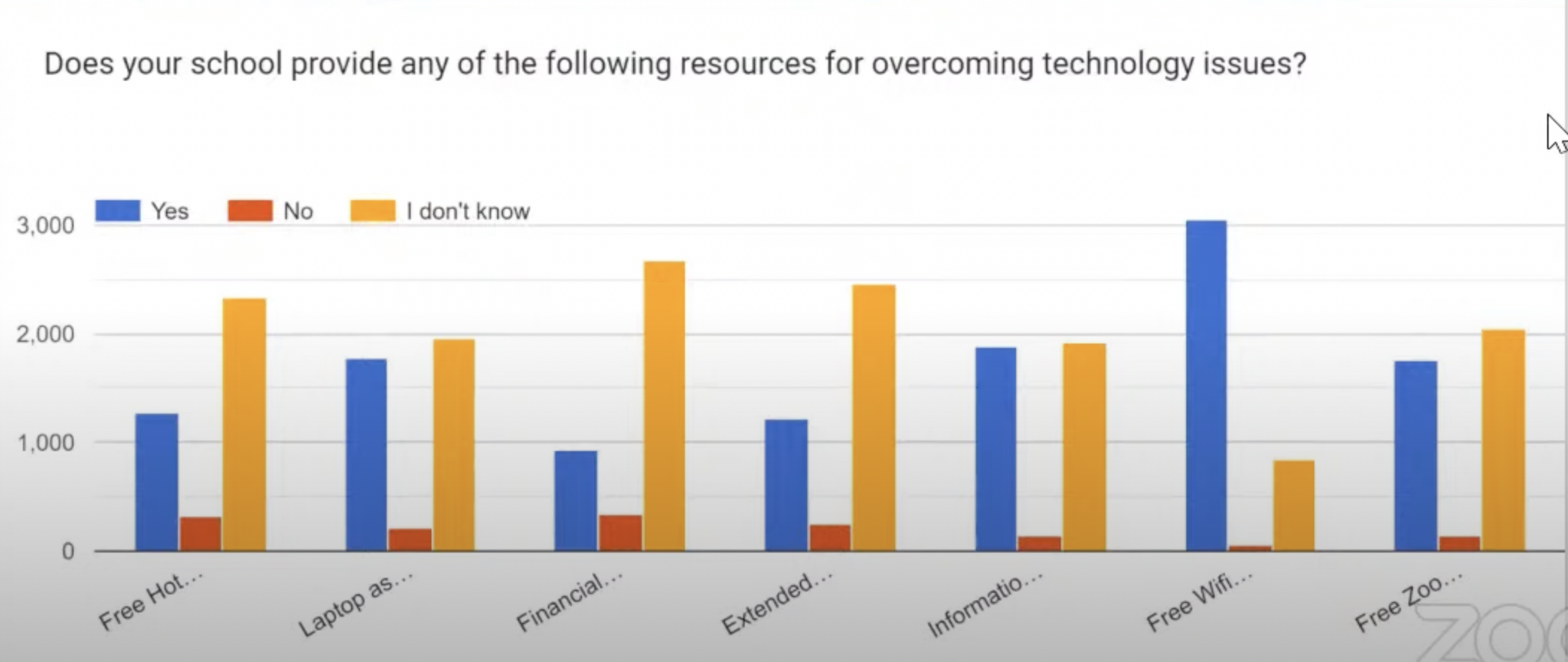

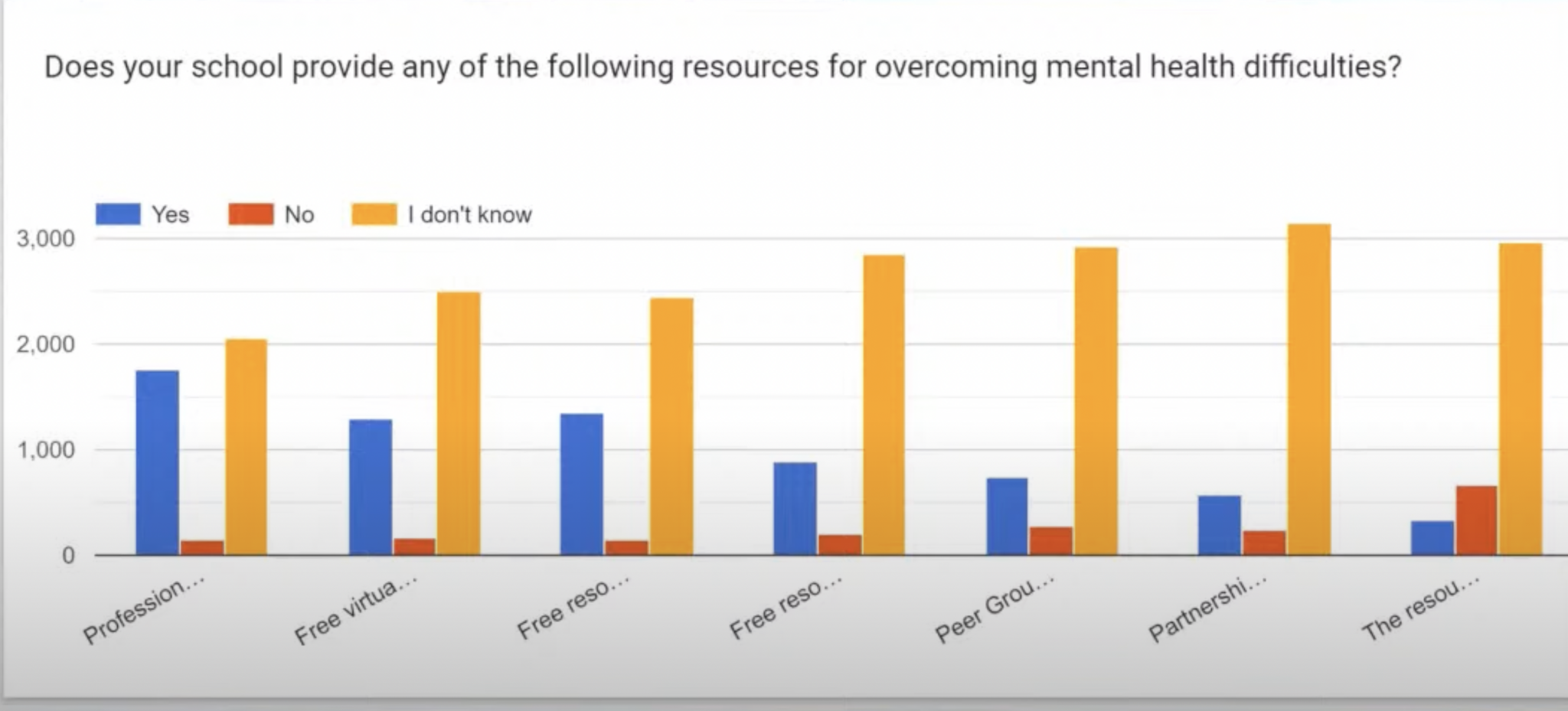

“We need to do a better job of explaining to students … about the indirect effects of some of these other issues with transportation with access to food,” Bradford said.
The strategic planning committee shared a report that details two North Carolina adult learner pilot programs, REACH and N.C. Reconnect. The report is in response to Session Law 2021-180 and provides information about the programs and how they were supported by legislative investment, enrollment and completion data, and recommendations for expansion.
N.C. Reconnect launched in 2021 and has been led and financially supported by the John M. Belk Endowment (JMBE). The primary focus of N.C. Reconnect is to increase enrollment of adult learners at community colleges in North Carolina with special attention on adults who have some college credits but no degree.
REACH is a national collaborative with more than 150 community colleges in six states. The group focuses on increasing completion rates among “adult learners from communities of color in high-value, short-term credential programs.”
In 2021, the NCCCS received $2 million from the General Assembly to expand the work of adult learner pilot programs. The NCCCS allocated grants to the 29 colleges participating in one or both pilot programs for marketing, outreach, and other enrollment efforts.
According to the report, “between 2020 and 2022, the number of adult learners enrolled in North Carolina community colleges increased by 10%, growing from 171,759 to 189,004.” The 29 participating colleges saw a 9% growth in adult learners over the last two years.
Enrollment is up in workforce and continuing education as well as adult basic skills across the NCCCS. Workforce and continuing education increased 19% from fall 2020 to fall 2022, and adult basic skills grew 37% in that same time period. Enrollment in curriculum programs declined 10% from fall 2020 to fall 2022.
“We can see where our enrollment growth is,” said Board member Ann Whitford. “We’ve got to put more resources and effort into (the areas with enrollment growth).”
The report contains four interrelated strategies to further expand adult learner efforts:
- Invest in marketing to recruit adult learners into programs with high employer demand.
- Shorten time to degree and increase enrollment by consistently awarding college credit to adults, especially military veterans, enrolling in community colleges.
- Drive program improvement by improving the state’s capacity to track labor market outcomes for workforce and continuing education students.
- Expand capacity at the North Carolina Community College System Office to support community colleges with adult learner recruitment and retention efforts.
Board members heard a presentation during their monthly issues luncheon about advising in North Carolina’s community colleges. Representatives from the North Carolina Community College System Office, Belk Center, and DVP-Praxis discussed the advising landscape and the conditions that support a common advising experience for students.
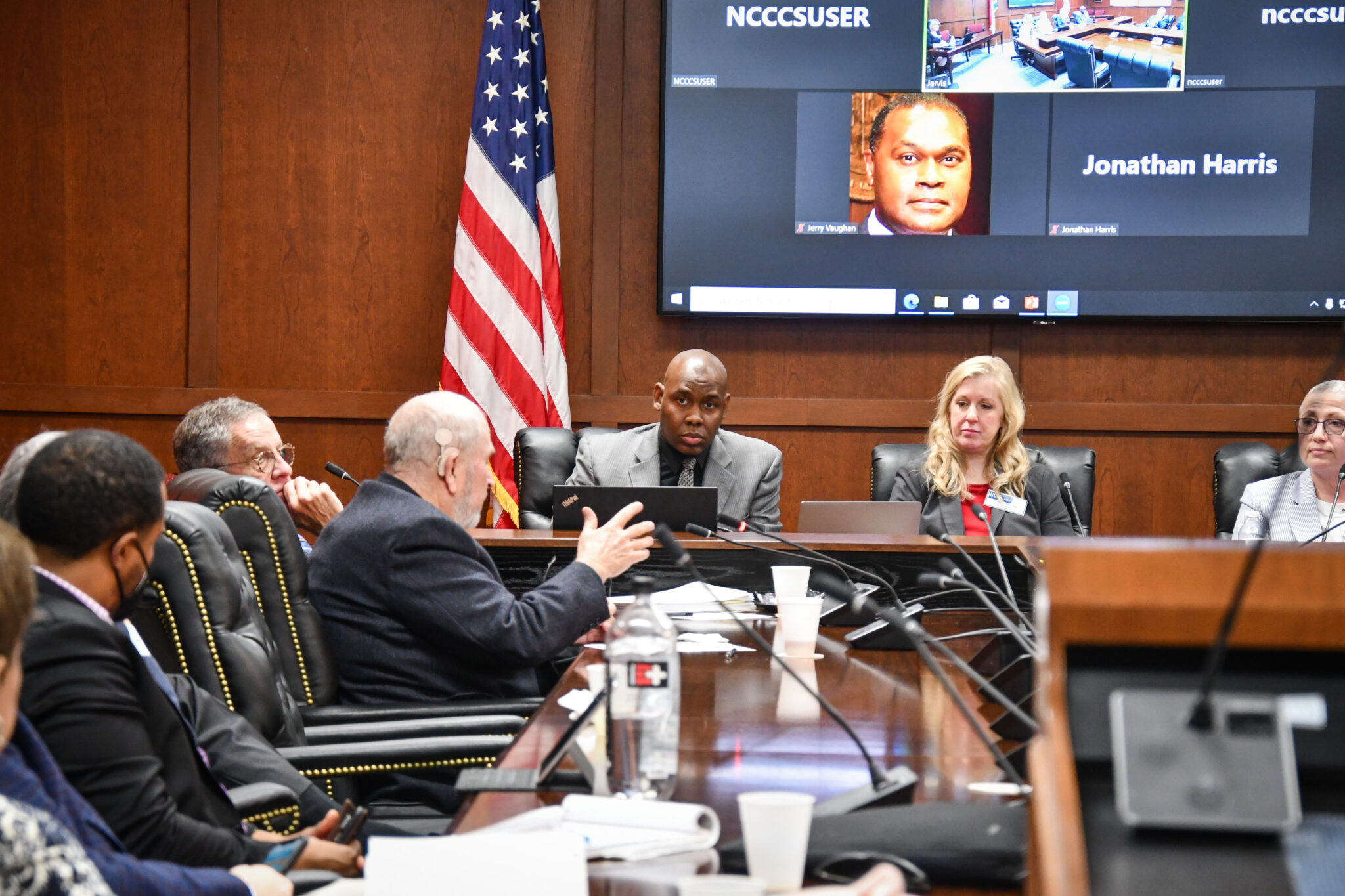

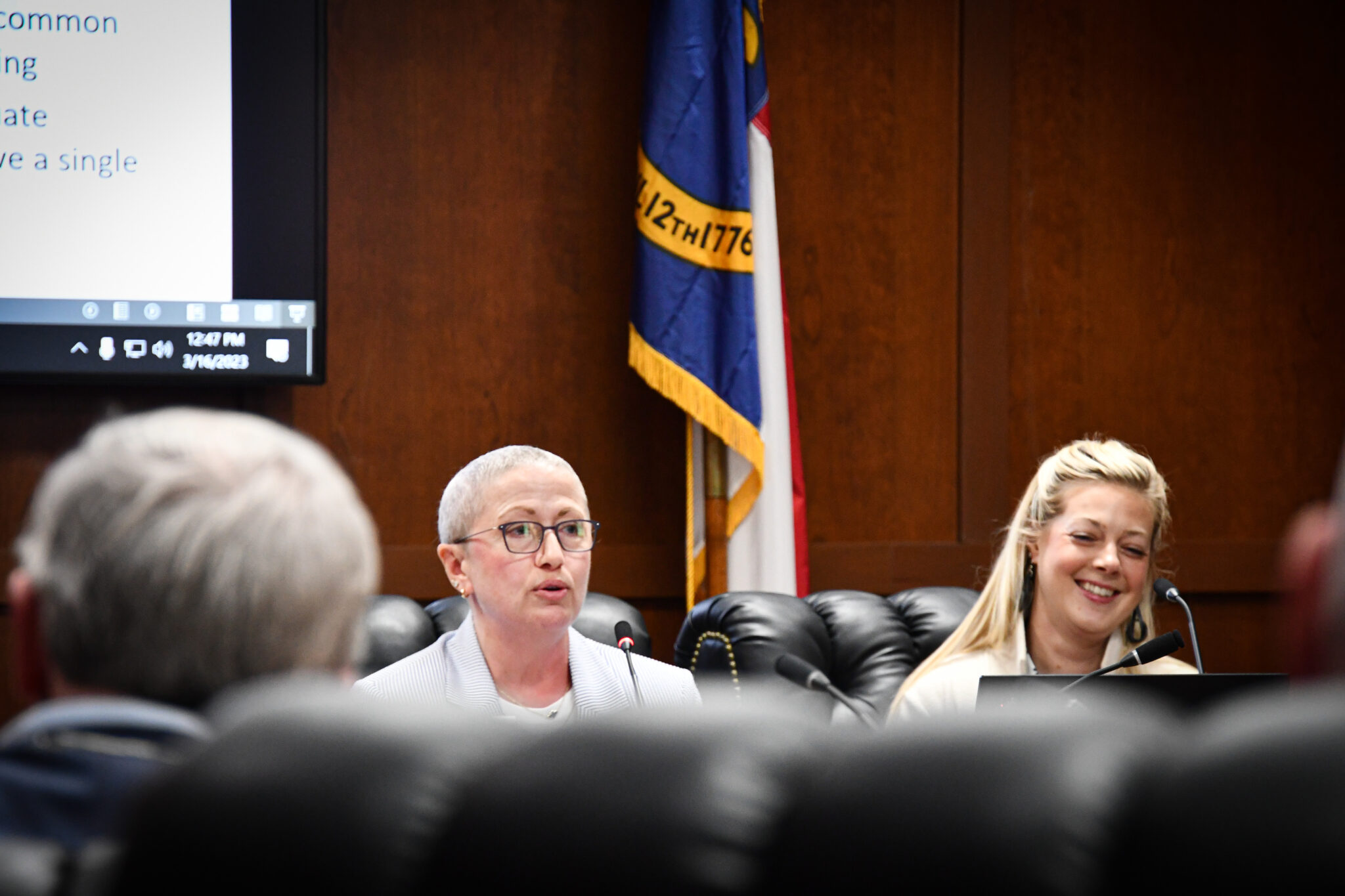

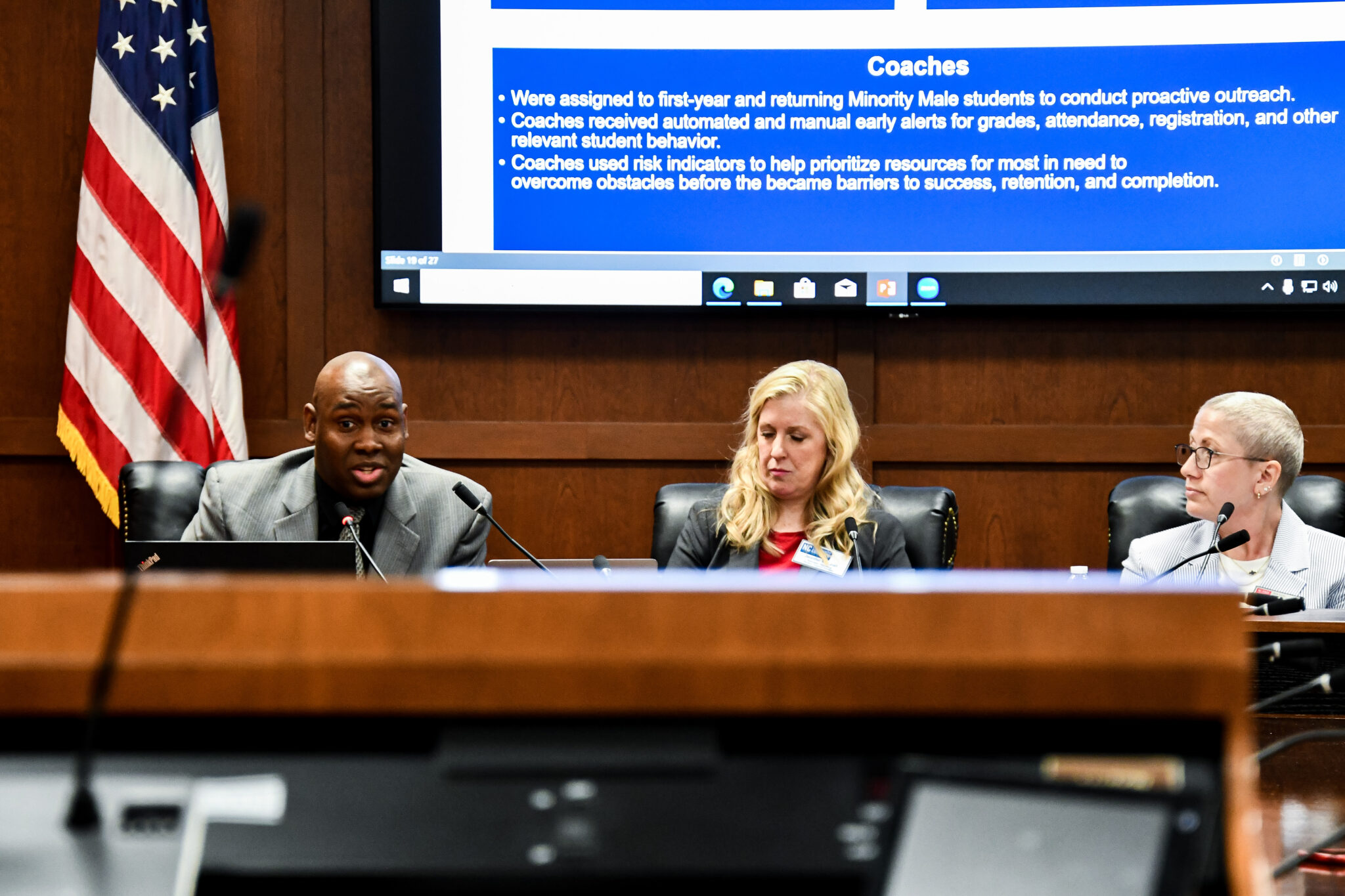

Presenters shared recommendations for enhancing advising, including a holistic approach that uses common technology and platforms across the system, as well as local support and resources. A common platform could reduce the number of times a student has to retell their information and story between departments, and it would allow faculty and staff to easily access a student’s information and the resources available to them.
Dr. Audrey J. Jaeger, executive director of the Belk Center, used the recent plant closure in Haywood County as an example of colleges needing local support and resources to address local issues.
“Their specific advising is going to be about new careers and new opportunities,” Jaeger said. “Although it is a complicated experience that students are facing, and that our professionals are having to address, that consistent, high-quality experience that comes with professional training, common technology, and local support should get our students what they need when they need it.”
A new policy, new hires, allocation of funds, and more
The Board approved a new policy that deals directly with their access to information. According to Board member Mark Merritt, the intention of the policy is to balance a Board member’s right to information, ensure information requests are respectful of the NCCCS staff’s time, and keep confidential and privileged information protected.
“The policy is hierarchical in nature. If there is an issue a Board member has with respect to receiving information, it recognizes that information is provided to board members through our committee structure,” said Merritt.
You can view the full policy here.
The Board also approved two new hires. Andrea Crowley was approved as the new executive director of the North Carolina Student Success Center, and Ann Anderson will assume the role as associate vice president of state level accounting and operations.
Colleges who experienced an enrollment increase greater than 5% of budgeted enrollment levels will receive an allocation from the Enrollment Growth Reserve funds. The Enrollment Growth Reserve is receipts for community college tuition and fees that exceed the amount certified in General Fund Codes at the end of a fiscal year. To calculate the allocation, actual FTE from fall 2022 was compared to fall 2021 in each enrollment area: Curriculum, Workforce and Continuing Education, and Basic Skills.
“For each of these academic areas that a college experienced enrollment changes over 5%, the eligible FTE was calculated and multiplied by the FTE tier values,” according to this Board document.
A pro rata calculation of the available funding was made for each college. The total allocation is $5,134,063, and 48 of the 58 community colleges will receive funding. You can view the recommended allocations for each college here.
A new curriculum program is coming to Gaston College. The Board approved a sports media technology program that will begin fall 2023. This program is new to the system.
The Board’s marketing committee detailed their communication focus over the last 90 days as well as future plans. Nathan Hardin, executive director of communications for the NCCCS, said major priorities include a website redesign and a statewide marketing plan. You can find the marketing committee’s presentation here.
Other items of note
March 29 marks community college legislative day. Representatives from the Board, NC Association of Community College Trustees (NCACCT), NCACCP, and NCCCS will gather to walk the halls of the General Assembly to explain the needs of the state’s 58 community colleges and advocate on behalf of the systemwide legislative priorities.
The next Board meeting is scheduled for April 20-21, 2023 at the system office.
Correction: An earlier version of this article misspelled the name of Lowery Cocke. EdNC apologizes for the error.



